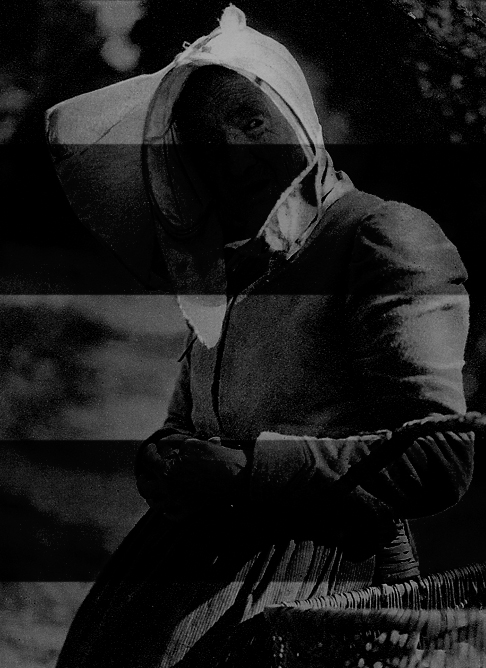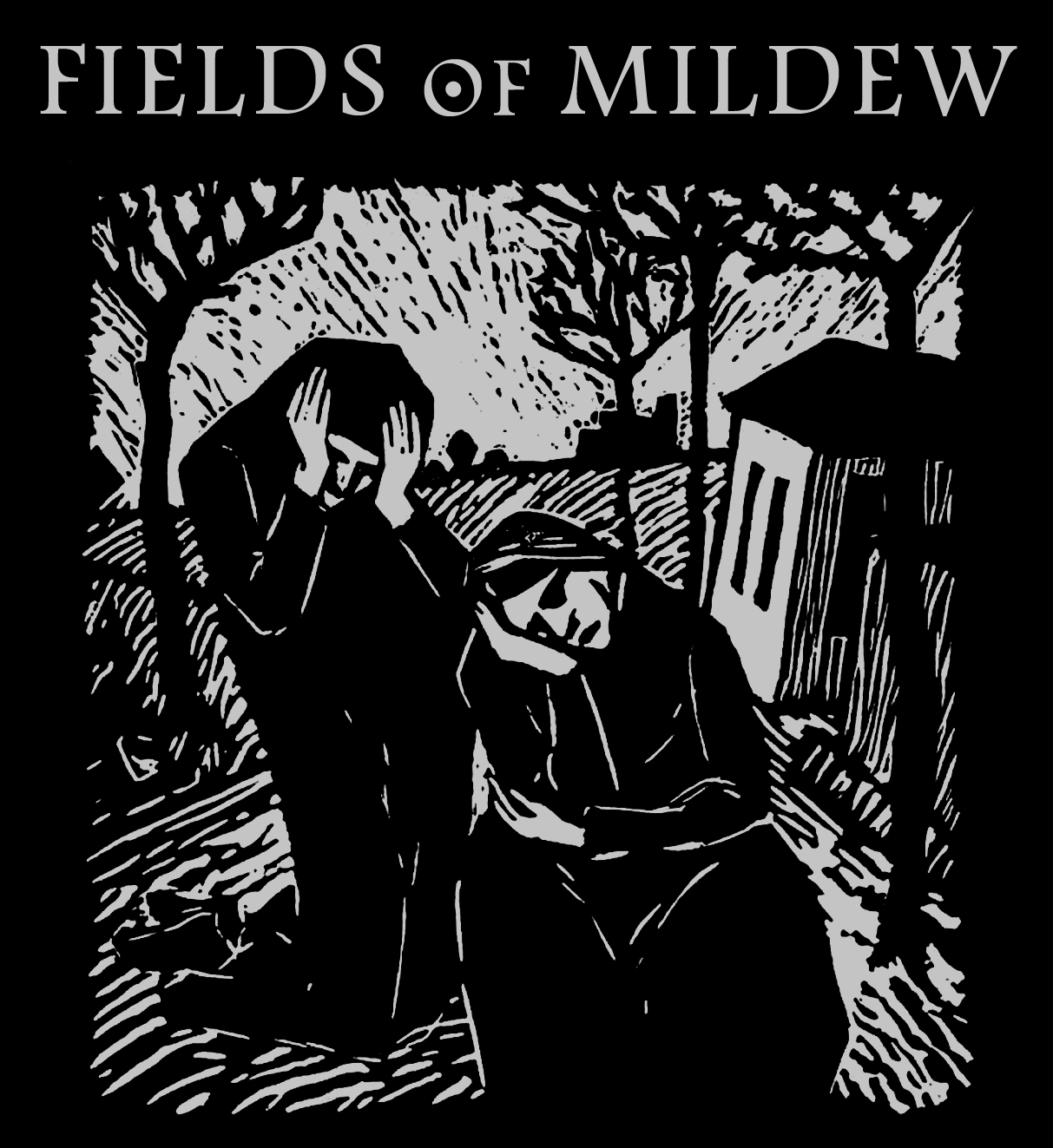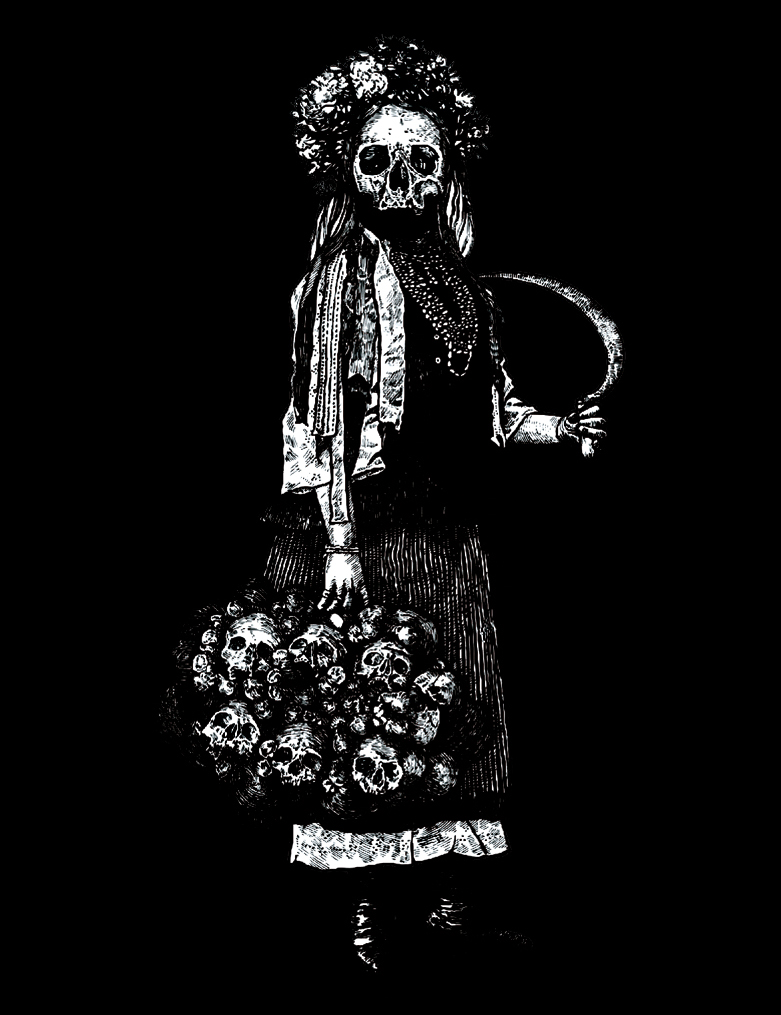Interview with Fields of Mildew
9/29/21 | J.R.
Fields of Mildew is an enigma, a mystery rising from the swamps of Germany's accursed Teufelsmoor, which translates literally to "Devil's moor" or "demon's moor." Communicating the misery of the Teufelsmoor's residents, who experienced blight and supernatural afflictions, though sparse, folk-inspired music and quiet contemplation, sole member R.'s own compositions fill the listener with a specific sadness and dread. Even through soaring choruses (see: III's "Vestiges") and carefully crafted vocal harmony, Fields of Mildew's unique despondency remains, a bleak farmhouse in a desolate, foggy landscape.
In his first interview, R. reveals a small portion of the mystery which is Fields of Mildew and the misery it carries.

What first inspired you to write about the Teufelsmoor? What does this place represent to you and to your art?
I’ve been to that place and its surroundings a couple of times. It is filled with magic and keeps inspiring me on many levels, especially the municipality Worpswede with the history of its artist colony there. It used to be home and domain for various painters and writers whose marks can still be seen today. Many old farmhouses have been turned into museums or galleries and you literally feel surrounded by culture. The Teufelsmoor for me represents hard labour, dire straits but also nature’s beauty and obstinacy. It’s not the romanticised images/imaginations of misty moors that stuck with me, but rather the stories of rural people, their poor conditions, struggles and tragedies in an unrelenting environment. When looking at their old photographs, you can almost see the people’s tough everyday reality in their faces, which was so far away from ours today, and in a way they remind us of being modest, reflect ourselves and look at our problems from a different angle.
Of course, there is the idea of the blight which afflicted the Teufelsmoor, but you also concentrate on superstition and folk tales. Could you recount some of these?
Well, these tales and the strong connection to superstition are generally wide-spread in rural communities and you can still find that in many areas and countries to this very day, especially among the older generations. They have always fascinated and inspired me. There are numerous tales that can be found in literature or guided tours about the Teufelsmoor and the area around Bremen in general; e.g. a man-eating giant called Hüklüt who was feared among the people and eventually was lured into the Teufelsmoor where he bogged down and disappeared; or an old hag wandering with a big, brittle basket on her back who could only be seen by children - whenever a child spotted her and talked to the parents about her afterwards, they wouldn’t believe the story, but the next day the child would disappear, ending up in the hag’s basket. You also find many tales about the ignis fatuus, leading wanderers into the depth of the moor or roaming around as restless souls. I can’t really recount these tales here properly, but you can easily find some of them online, too. I like that every region has its own little varieties and it’s exciting how similar many of them are and that loads have been passed on throughout the years, even if you go to other parts or outside your country.
You changed your release naming convention after III from numerals to worded titles. What led to this change?
Herbst was the first “out of line” release with a collection of songs written and recorded at different times whereas the first three EPs were more consistent and respectively formed a cohesive unit with six songs each. A triad of incomplete woes only became a three-song-EP and therefore didn’t continue the initial trilogy either. At some point, I might proceed with numerals and create IV with six songs again, but I won’t make it a rule or concrete plan.

Fields of Mildew was associated with underground tape label Fallow Field for the first few years of its existence before the label assumingly folded. As Fallow Field was primarily a metal and noise label, what was it like being a folk-inspired act on its roster?
I learned about Fallow Field from the releases of Masks of Canaan and Tempel ov Blood, which I really liked because of their stripped-down charm. So, initially, I wasn’t really familiar with the harsher side of the roster but thought that Fields of Mildew would match the label’s spirit and that’s what matters in the first place. A lot of Fallow Field’s releases feel almost bare or naked to me, so it mirrored my own concept of bleakness and austerity. It shouldn’t be about genre restrictions but more about the right feeling which is supposed to run like a golden thread through it.
You've released your music on tape in limited amounts. How do you feel like this format best represents your oeuvre?
Fields of Mildew is a minimalist and fairly small project and I think tapes can reflect this simple approach physically as well. I’ve been a tape lover for many years and the first format that came to mind when thinking about releasing the material under this moniker was tape. It might not have the best sound and quality but it has soul and takes me back to times when I started playing the guitar and recorded the first snippets with two tape recorders in order to add a second guitar track. Somehow, I’m still connected to cassettes and like the memories that go along with them, so it’s more an emotional than a rational thing. Additionally, you can dub your recordings to tape in a quite short period of time on your own and offer it for a very reasonable price instead of waiting for CD or vinyl plants for months.

You utilize interesting, at times discordant lead harmonies over what is otherwise very harmonious, jangling music, which I'd say is a large reason why Fields of Mildew can be set aside from other singer/songwriter or dark folk projects. How did you discover this style?
Generally, I’m fond of harmonies as well as disharmonies in music which kind of reflects the light and shadow aspect that runs through life. When listening to Fields of Mildew, it is quite obvious that I like melodies and catchy vocal lines while at the same time having this lurking eeriness that is hovering over everything and can take over every moment. It is not only part of this project’s DNA since I’m mainly focusing on the harsher side of life, but also the general way I write or better the way the music turns out very often - even in catchy or lighter parts you’ll most certainly find an underlying sombreness, either in the lyrics or music itself. It’s not that I plan to go in a specific genre direction, but it’s a natural process coming from inside, a reflection of life’s duality which has been part of my music since I started writing songs.

It's interesting to that you seem not just rooted in the physical (the terroir of the moor, ashes, drought, bones, blight, etc) but also the metaphysical, with songs named after gods of sleep and dreams: "The Paradise of Loss," "The Pale Season," "Saudade." Do you find that Fields of Mildew is equally rooted in the physical and metaphysical?
Yes, I’m interested in both; they’re closely intertwined and of course physical experiences and environments often result in metaphysical questions or vice versa. When writing for or listening to Fields of Mildew, I’ve always tried to imagine what it would be like to go back in time and actually live the life of those rural farmers, devoid of almost everything we grew up with nowadays, how my views and character would change under these conditions, how I would look on life, how my mindset would shift, how my dreams would differ, what I would revalue and query. It is quite simple to close your eyes and imagine these pictures you described above (moor, ashes, blight etc.); they do cause a strong atmosphere in your head that adds to the music, however, trying to crawl into these people’s minds and get to the bottom of their feelings, perceptions and beliefs is way harder but also more intriguing in my opinion, exploring the different philosophies of life and drawing lines to your own experiences as well. Also, whenever I read these little tales or watch documentaries about rural folk, I’m always fascinated by their stories that show such a vivid imagination and a grand world of thought compared to the bare physical world they lived in. They had their very own understanding of knowledge and prudence that grew out of this work-dominated, harsh reality.
Much like your music, you, yourself, are mysterious. Do you feel that the added mystery of your identity adds to the Fields of Mildew experience? Or does it serve another function?
Personally, I don’t see any mystery about me or my music just because I prefer to stay in the background as a person and rather let my creations speak. It’s not that I need to hide from anything or want to create a trendy secrecy, but it simply doesn’t contribute to the music when sharing personal details or images. I value the artistic side of bands and have always preferred humble promotion instead of promoting yourself. There is a concept that includes the music, lyrics and artwork – that’s the core and everything the listener should pay attention to. I do understand that sometimes people have a certain curiosity about line-ups, origins, pictures etc., and I’m not absolving myself from it, but my projects should be built on the art, not the artist. Everything I want to share, I share in my releases or news related to them.
I was released on vinyl by Devoted Art Propaganda. Are there any plans to continue releasing the discography in this format?
It is planned to complete the EP trilogy on vinyl. II has just been released by Devoted Art Propaganda and Death Knell Productions and time will tell when III sees the light of day on vinyl. Apart from that, there are no plans regarding LP versions at this point.
Follow Fields of Mildew on Bandcamp and Facebook.
Fields of Mildew physicals through Devoted Art Propaganda and Death Knell Productions.



